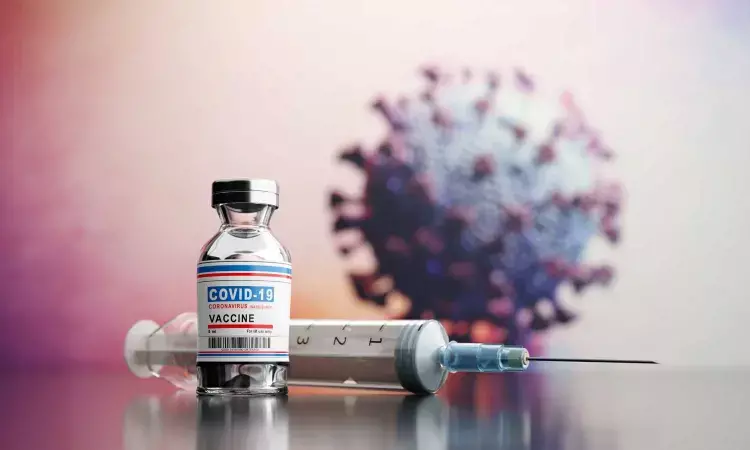- Home
- Medical news & Guidelines
- Anesthesiology
- Cardiology and CTVS
- Critical Care
- Dentistry
- Dermatology
- Diabetes and Endocrinology
- ENT
- Gastroenterology
- Medicine
- Nephrology
- Neurology
- Obstretics-Gynaecology
- Oncology
- Ophthalmology
- Orthopaedics
- Pediatrics-Neonatology
- Psychiatry
- Pulmonology
- Radiology
- Surgery
- Urology
- Laboratory Medicine
- Diet
- Nursing
- Paramedical
- Physiotherapy
- Health news
- Fact Check
- Bone Health Fact Check
- Brain Health Fact Check
- Cancer Related Fact Check
- Child Care Fact Check
- Dental and oral health fact check
- Diabetes and metabolic health fact check
- Diet and Nutrition Fact Check
- Eye and ENT Care Fact Check
- Fitness fact check
- Gut health fact check
- Heart health fact check
- Kidney health fact check
- Medical education fact check
- Men's health fact check
- Respiratory fact check
- Skin and hair care fact check
- Vaccine and Immunization fact check
- Women's health fact check
- AYUSH
- State News
- Andaman and Nicobar Islands
- Andhra Pradesh
- Arunachal Pradesh
- Assam
- Bihar
- Chandigarh
- Chattisgarh
- Dadra and Nagar Haveli
- Daman and Diu
- Delhi
- Goa
- Gujarat
- Haryana
- Himachal Pradesh
- Jammu & Kashmir
- Jharkhand
- Karnataka
- Kerala
- Ladakh
- Lakshadweep
- Madhya Pradesh
- Maharashtra
- Manipur
- Meghalaya
- Mizoram
- Nagaland
- Odisha
- Puducherry
- Punjab
- Rajasthan
- Sikkim
- Tamil Nadu
- Telangana
- Tripura
- Uttar Pradesh
- Uttrakhand
- West Bengal
- Medical Education
- Industry
Maternal vaccination against COVID-19 may lower risk of preterm births

During the first two years of the pandemic, a COVID-19 infection during pregnancy increased the risk of preterm birth and NICU hospitalizations. However, by 2022, when COVID-19 vaccines were readily available in the United States, this effect disappeared – suggesting that vaccination against the coronavirus may have prevented thousands of preterm births, according to a new study led by Stanford sociologist Florencia Torche.
The study’s findings, published Nov. 27 in the journal Proceedings of the National Academy of Sciences, show how vaccination against COVID-19 may have helped a generation of U.S. children avoid the long-term health issues and costs associated with premature delivery. As previous studies have shown, children who are born prematurely are more likely to encounter educational and economic setbacks later in life.
“The effects of COVID-19 on infant health may be among the most enduring legacies of the pandemic,” said Torche, the Dunlevie Family Professor in the School of Humanities and Sciences. “I hope the study provides strong evidence supporting the benefits of vaccination for the health of the next generation.”
Studying the effects of COVID-19 infection
Torche, along with Jenna Nobles at the University of Wisconsin-Madison, based their study on natality data for California, a diverse and populous state that accounts for 12% of all U.S. births.
In June 2020, California began recording confirmed or presumed cases of COVID-19 infection for all mothers giving birth. This is also when the researchers began their analysis, focusing on facilities with documented, universal testing.
The researchers identified infants with siblings in the California birth records, which allowed them to compare “treated” infants exposed to COVID-19 infection in utero with their “untreated” siblings who did not experience a COVID infection.
The researchers also took into consideration the zip code of the mother’s residence to compare areas that had low and high uptakes of vaccination against COVID-19.
Some of Torche and Nobles’ key findings include:
• Maternal COVID-19 infection increases the probability of preterm delivery, defined as a birth that occurs before 37 weeks of gestation, by 1.2 percentage points, from 7.1 to 8.3%. “This effect is roughly equivalent to in utero exposure to a 9 percentage point increase in the area-level unemployment rate – or to high-intensity wildfire smoke for 20 days – an enormous impact,” the researchers write.
• Maternal COVID-19 infection also led to higher rates of premature delivery before 32 weeks of gestation, resulting in infants facing the highest risk of mortality, morbidity, and developmental difficulties later in life.
• By January 2022, the impacts of COVID-19 on preterm births dropped to zero, but zip codes that had high vaccination rates saw the harmful effects disappear a year earlier than areas with a slower vaccination uptake.
How COVID-19 may exacerbate inequality
Torche and Nobles’ study is one of the first to offer a causal estimate of the impact of maternal COVID-19 infection on neonatal health.
With vaccine rates for the most recent booster hovering at about 7% of U.S. adults, Torche hopes the study emphasizes the importance of staying protected against the virus.
“Unfortunately, even if the adverse impact of COVID-19 infection on preterm birth has plummeted to zero, this adverse impact is likely to emerge again as the virus continues to evolve and mutate, and as vaccine-driven immunity wanes,” Torche said.
The study builds on Torche and Nobles’ previous work that looked at the socioeconomic disparities of the COVID-19 pandemic and its impacts on inequality in the U.S.-an issue Torche is concerned about here, too.
“Barriers to vaccination are higher in disadvantaged and racialized populations, including people with less education and those living in rural areas, i.e. populations that experience much worse infant health even in absence of COVID-19,” Torche said. “This suggests COVID-19 will further exacerbate disparities in infant health in the United States.”
Reference:
Florencia Torche and Jenna Nobles, Vaccination, immunity, and the changing impact of COVID-19 on infant health, https://doi.org/10.1073/pnas.2311573120.
Dr Kamal Kant Kohli-MBBS, DTCD- a chest specialist with more than 30 years of practice and a flair for writing clinical articles, Dr Kamal Kant Kohli joined Medical Dialogues as a Chief Editor of Medical News. Besides writing articles, as an editor, he proofreads and verifies all the medical content published on Medical Dialogues including those coming from journals, studies,medical conferences,guidelines etc. Email: drkohli@medicaldialogues.in. Contact no. 011-43720751


